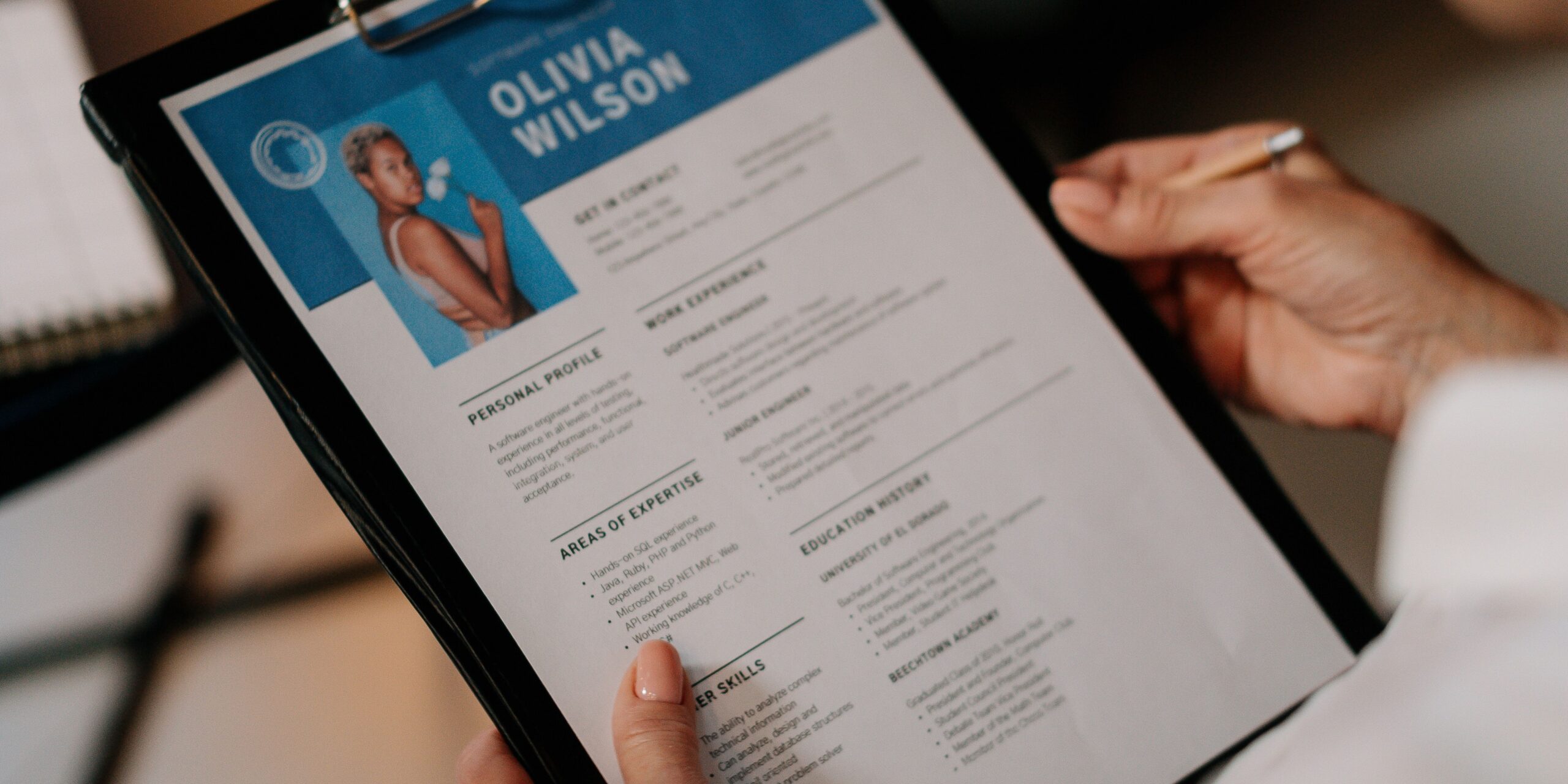No interviewer expects candidates to discuss their intentions for the following 1,820 days. Interviewers commonly question, where do you see yourself in five years to get a sincere response. It’s a difficult question to answer, but if you don’t prepare for it, you’ll probably get it incorrect. Below, I’ll discuss why employers ask about your future intentions and how to craft an excellent response.
Why do employers ask, ‘Where do you see yourself in five years?’

To determine whether your professional goals align with the position you’re interviewing for, interviewers frequently use this question. If they don’t, it will simply undermine your drive to advance in your career or remain long enough to make an effect. According to the Bureau of Labor Statistics, the majority of employees stay in their jobs for four years. Employee tenure in tech firms is often substantially shorter.
Hiring managers want to know that the candidates they hire have a strong desire to achieve and the potential to advance. Interviewers seek to know if the candidate will be a good fit for the company in the short and long term. As hiring managers, they don’t have any idea what that position means to you — but they want you to be ready to take on any challenge.
How to answer “Where do you see yourself in five years?”

HR only wants to invest in someone who is genuinely enthusiastic about their work and views it as an opportunity to thrive in the coming years. The recruiting managers are undoubtedly searching for red signals since recruiting and training new employees is a time-consuming process.
Furthermore, if the new recruit is already going to quit as soon as something better comes along, why should they take a chance on them? That’s the reason why you’re further being evaluated by asking “Where do you see yourself in five years?”.
Despite your expertise and qualifications, you may not be picked solely based on your response to this question. If your response suggests to the recruiter that you are not totally committed to the position for which you have applied. However, this is only possible if you do not think about it before answering the questions.
As a result, it is recommended that you prepare for interview questions before the actual interview. Assuring that your comments are well-thought-out and that you appropriately communicate what you intend to say. You may practice answering and preparing for this interview question by doing the following:
1. Define your career goals: The purpose is to think and write down the things you need to do professionally in the next years. For instance, any degree you wish to pursue, any qualification or skill you wish to obtain, any position you wish to run for, and so forth.
2. Establish links between your objectives and the job description: Once you’ve finished thinking, make sure you discover a rationale for the goals you wish to attain in your present employment.
3. Determine if the firm can prepare you for your career ambitions: Finally, it’s critical to be honest about whether the company you’re applying with can prepare you for your career aspirations over the following five years. If it cannot, you should rethink.
Tips for answering ‘Where do you see yourself in five years?’

Here are a few pointers to keep in mind while framing an answer to the question.
- Make sure you sound a little ambitious.
- Don’t be overly explicit about job titles or time periods.
- Concentrate on the talents you wish to master and improve.
- Show how your professional ambitions and the position you’re looking for are compatible.
Things to avoid while answering ‘Where do you see yourself in five years?’

Here are a few things to never let HR know while answering the question…
- I don’t know.
- I haven’t thought about it.
- I don’t have any plans.
- I just want to take things as they come.
- I want to change careers.
- I don’t want to be in this field anymore.
- I want to be rich and famous.
- I’m not sure if I want to stay with this company.
- I’m not sure if I want to continue working.
- I want to work for myself.
Where do you see yourself in five years sample answers

Here are a few samples using which you can frame an answer which will help you land your dream job.
Sample answer 1
In the next five years, I envision myself progressing in my career and taking on more responsibilities within the company. I plan to leverage the knowledge and experience I have gained in this field to do so. Alongside this, I am looking forward to starting a family and finding a balance between my professional and personal life. I am confident that aligning my career and personal goals will assist me in achieving a harmonious work-life balance.
Sample answer 2
It was tough for me to predict what would happen throughout my internship years. I had established basic goals that I knew I could accomplish. I want to put myself to the test during the next five years. I’ve established goals that will push me to be my best. These goals are concerned with making difficult but productive decisions. In my early years, I attempted to be safe, like most people do. The next five years will be filled with obligations that will require more decisiveness on my part. I am confident that the coming years will be fruitful for both the company and me.
Sample answer 3
According to my past notions, I have seldom landed where I want. It might be because of the ambiguous goals I’ve established in the past. For the same reason, I began establishing smaller goals, which led me to this point. Keeping this habit going, I’d like to add some greater goals. I wish to work with your business and do my best for the responsibilities that have been allocated to me. Throughout these years, I want to deliver on what is expected of me. If necessary, I shall consider myself accountable for heading the team that will offer the appropriate results to this reputable firm. It is not as simple as it appears. I hope my choices are fruitful in the end.
Sample answer 4
The upcoming five years will play a crucial role for me, and working here can help me take another step on the right path. According to what I’ve heard, this group is the best there is. I have no more requests. In the following years, I will be able to contribute to the best of my skills. In exchange, I envision myself honing my talents. I can supplement my knowledge with the expertise of the current work team. This knowledge may subsequently be applied to the organization’s advancement. However, the five years can establish a good basis for my career. On the foundation, I intend to create floors of achievement. This is where I envision myself in the next five years.
Sample answer 5
Let me state unequivocally that I have never been more excited about a job opportunity. It’s because this is the job I’ve always wanted. I can assure you that I am not refining my words out of desperation. To get to this point, I had established career goals for myself. After that, I’m looking forward to giving it my all in every way. My professional expertise may be applicable to this employment post. In addition, I may assist new employees in adjusting to their new surroundings. I can help them get to the point where they can expound on their ideas for the advancement of this organization. This is an ideal worth striving for, in my opinion. In five years, I hope to be able to share my experience with the team for the benefit of everybody.
FAQs
Actively pursuing new challenges and learning opportunities, such as taking on new projects, attending industry events, and seeking mentoring or coaching, is one strategy to continue professional growth. Another option is to keep your skills and knowledge up to date by taking relevant classes, getting certification, and participating in professional groups.
I intend to contribute to the company’s development and success by consistently increasing my skills and knowledge, taking on new responsibilities and projects, and effectively cooperating with colleagues and cross-functional teams. I also hope to provide new insights and inventive ideas for the company’s development.
Personal and professional objectives must be balanced via careful planning and prioritizing. It is critical to establish clear, attainable goals in both areas and to monitor progress on a regular basis to ensure that neither is overlooked.
I intend to take on more responsibility and broaden my skill set within the organization during the next five years. I am keen to learn new things and contribute to the organization’s success.
Final verdicts on where do you see yourself in five years
Effectively answering where do you see yourself in five years may reflect that you’re ambitious, proactive, and have a clear vision of where you want to go in the future, which can be an appealing attribute for employers. Furthermore, having an understanding of the question can benefit you in setting a clear professional path and making informed decisions regarding your future.
It can also be used for self-reflection and personal growth. Additionally, it gives employers an insight into your career aspirations, goals, and motivation, as well as your ability to plan and set realistic targets for yourself. If looking for more such interview questions and how you can answer them then check my recommendations below.
However, you must keep in mind that this isn’t the only question you need to focus as simple questions like tell me something about yourself or why should I hire you also have a huge impact on your hiring.
Was this helpful?
Introducing Bhaskar, your tech-savvy neighbor turned wordsmith extraordinaire. Over the past few years, Bhaskar has become the trusted authority for unraveling the mysteries of iOS, Android, macOS, and Windows. Armed with a B.Tech degree, he has dedicated himself to making technology easy to understand for everyone. His expertise shines through his contributions to well-known publications like Guiding Tech, iGeeksBlog, GeekFrost, and MakeUseOf (MUO). Bhaskar excels in creating straightforward how-to guides and comprehensive articles that make the complex tech landscape accessible to all. When he's not diving into the tech world, you'll find him enjoying music or indulging in sports.






